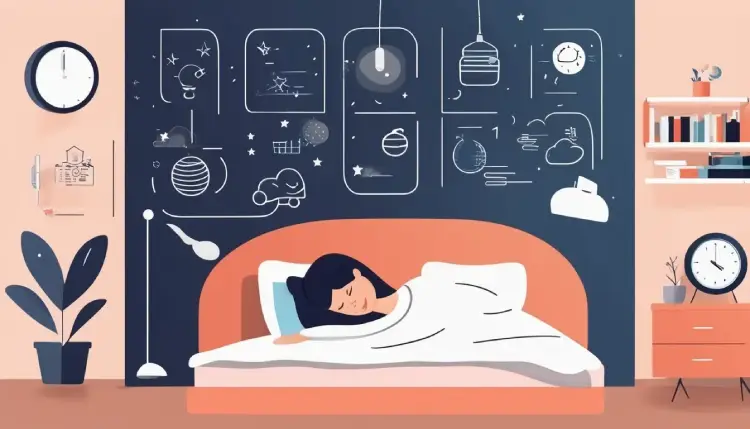- trending-title
- Top 11 Must-Visit Travel Destinations in India for 2025
- contact@explorenew.in


Getting a good night’s sleep is crucial for maintaining your physical health, emotional well-being, and overall productivity. However, many of us struggle with tossing and turning, unable to fall or stay asleep. If you’re looking to improve your sleep quality, you’re in the right place. In this article, we’ll cover practical, science-backed tips to help you achieve restful and rejuvenating sleep.
Your body thrives on routine. Aim to go to bed and wake up at the same time every day—even on weekends. This consistency helps regulate your internal clock, making it easier to fall asleep and wake up naturally. Set a reminder to wind down about an hour before bedtime to reinforce the habit.
Your bedroom should be a sanctuary for sleep. Focus on these key elements:
Electronic devices emit blue light, which can disrupt your body’s natural sleep-wake cycle. Aim to power down screens at least an hour before bed. Instead, try relaxing activities like reading a book, meditating, or taking a warm bath.
What you consume during the day impacts your sleep at night:
Physical activity can improve sleep quality, but timing matters. Morning or early afternoon workouts are best. If you exercise too close to bedtime, the adrenaline and energy boost might keep you awake.
Calm your mind and prepare for sleep with relaxation techniques such as:
Stress and anxiety are common culprits of sleepless nights. Write down your worries in a journal or create a to-do list for the next day to clear your mind. You could also try guided meditations or gentle yoga to ease tension.
While short power naps (20-30 minutes) can be refreshing, long naps can disrupt your nighttime sleep. If you’re feeling drowsy during the day, try to stay active or expose yourself to natural light instead.
When you prioritize sleep, you’ll notice a positive impact on your daily life, including:
Good sleep is within your reach, and the benefits are life-changing. Start by implementing just one or two of these tips tonight. Commit to creating habits that support restful, rejuvenating sleep. Your future self will thank you!
If you’re ready to transform your nights, share this guide with a friend or family member who could also benefit from better sleep. Let’s build healthier habits together!
Fans
Fans
Fans
Fans
